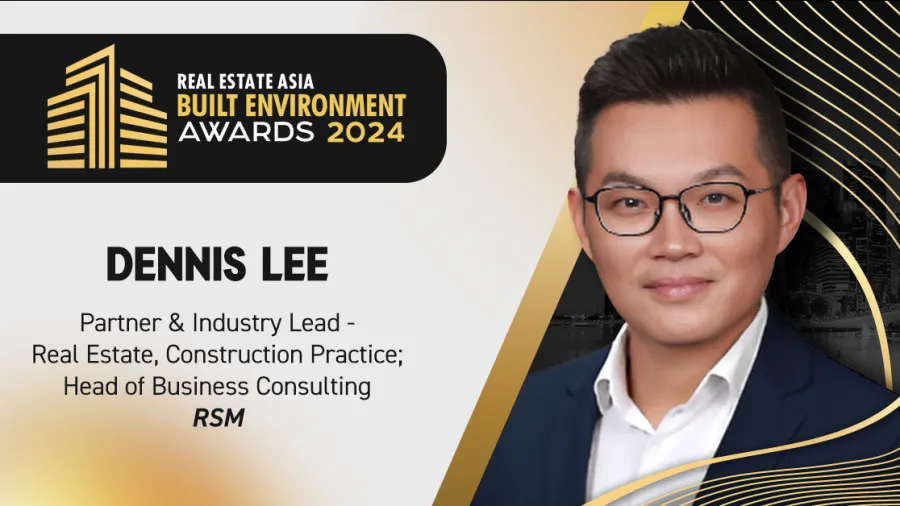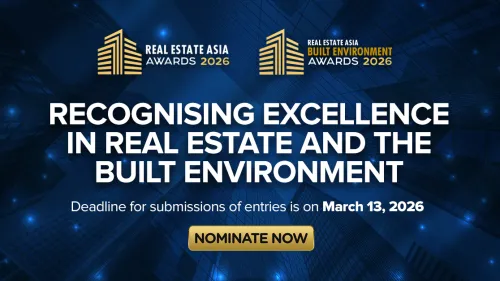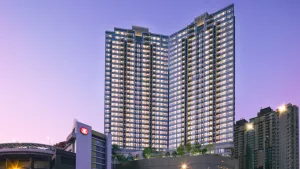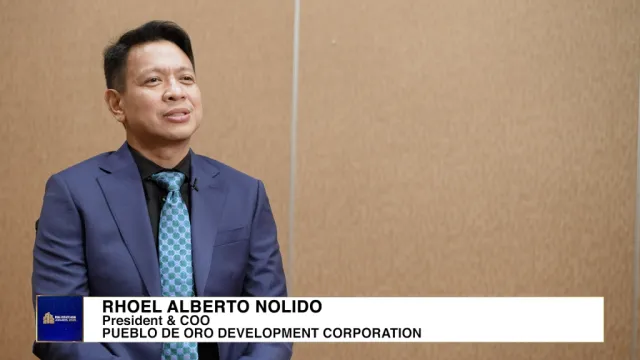
Innovation and sustainability: RSM's Dennis Lee offers blueprint for real estate's evolution
Gain insights from Dennis Lee's extensive experience as he shares strategies for navigating the evolving landscape.
From sustainable building practices to the integration of cutting-edge technologies, the real estate landscape is evolving at a rapid pace, presenting both challenges and opportunities for industry leaders.
Dennis Lee, Partner at RSM Singapore and a distinguished judge at the Real Estate Asia Built Environment Awards 2024, is amongst these industry leaders. With a wealth of experience spanning diverse sectors, including real estate and construction, Lee brings a unique perspective to the table.
With extensive experience in corporate governance, internal audit, and enterprise risk management, Dennis has played a pivotal role in guiding Singapore-listed companies, fund management firms, and family businesses towards success. As the Industry Lead for Real Estate & Construction Practice at RSM, he has spearheaded numerous projects, evaluating risks and providing strategic advisory to businesses in the real estate sector.
In this exclusive interview, Lee, as a judge at the Real Estate Asia Built Environment Awards 2024, shares his invaluable insights on the future of real estate and the strategies needed to navigate this ever-evolving landscape.
Looking ahead, what do you believe will be the most disruptive forces shaping the real estate landscape in the next decade and how should industry leaders prepare to address the associated risks and opportunities?
Market preference and demand will shift towards sustainable buildings. Building techniques and design methods will incorporate green innovations. These will be expected to improve build efficiency, reduce construction waste and reduce lead times. Home buyers and future asset owners will also expect new builds to have IOT capabilities, which will allow better connectivity and enhance the asset life cycle and usage experience. The industry has to be prepared to upgrade technical skills, capital investments and resource capabilities in order to harness the opportunities that come with these sweeping trends.
From your experience, what are some common pitfalls that companies encounter during the implementation of expansion strategies and how can they be mitigated?
Whether an investment or expansion strategy succeeds depends on a number of factors, including market conditions, which can be difficult to anticipate. Business owners need to assess project and business risk as a whole. What may appear to be a “sweetheart” deal may not necessarily yield expected returns within the original timeframe. Companies need to consider project-specific challenges, geographical constraints, regulatory hurdles, availability of skilled resources, and last but not least, the adequacy of financing to buffer cash flows over a project period. Proper cost planning, expense management, and proactive project oversight are imperative in order to keep the projects running on time and within budget. Investing in proper integrated information systems will yield dividends in the longer run as the availability of information to make timely decisions is the difference between winning and losing.
Real estate projects often involve significant capital investments and long-term commitments. How do you advise companies to balance the pursuit of growth opportunities with the need for prudent risk management, particularly in uncertain economic environments?
Doing business is about taking calculated risks. Developers need to maintain a certain volume of order books to make commercial sense. Developers today are astute, having gone through the COVID crisis and the fallout of the financial crisis a decade ago. I would advise closely monitoring gearing ratios to ensure that the business is not overleveraging. [I would also advise] to factor in active scenario analysis and cash flow stress tests to get a sense of the full picture, and whether the company will withstand unanticipated shocks. All development projects need to recognise the different project and payment milestones. It is therefore critical to maintain good visibility over any unforeseen commitments, such as major variation orders or unbudgeted costs, that erode profitability and margins if left unchecked.
Could you share some best practices or strategies for effectively integrating risk management into the decision-making processes of real estate companies?
Risk management is a constant; risk ownership needs to be clearly defined and those who are responsible need to know the importance of what they are doing. We often see project risk management activities that are disconnected from the broader responsibilities of corporate risk management, where in fact these need to be integrated and synchronised. The risk implications are also often assessed in silos. In reality, these are all linked. For example, sub-contractor failures will impact projects as well as financing and may cause temporary shortages of resources. There are also legal and contractual obligations to address stakeholder management issues that can arise. Therefore, the lens of risk needs to capture these concurrent threats and a proper communication and reporting framework will allow business, finance, and project owners to synchronise risk management actions better.
Environmental, Social, and Governance (ESG) factors are gaining prominence in the real estate industry. From your perspective, how can integrating ESG considerations into risk management frameworks enhance long-term value creation for real estate portfolios?
For a developer and asset owner, a portfolio that is ESG-centric may translate to better asset sales and occupancy ratios. This leads to stronger yield and better returns on asset. In certain jurisdictions, green buildings enjoy subsidies and government grants which also defray development and operating/maintenance costs. For builders, the green agenda is key as green techniques and using materials that are more sustainable and have lower carbon footprint will also enable these companies to bid for higher profile or larger scale project tenders. However, what is not measured cannot be achieved, and it is therefore important that the facts and figures to back up green claims are properly curated. The risk management framework should address the ESG risks associated with not only the corporate front but also at the business activity level. Data availability, integrity, and reliability of source should also be a consideration in the risk-storming dialogues.
Could you shed some light on the specific criteria or key factors you prioritise when assessing submissions, as a judge at the Real Estate Asia Built Environment Awards 2024?
I prioritise innovation in the project brief and plan. Secondly, I look for authenticity in terms of build objectives and execution methods. Finally, I look for overall sustainability in terms of the long term rational for the project which also needs to include lifecycle management.



















 Advertise
Advertise







